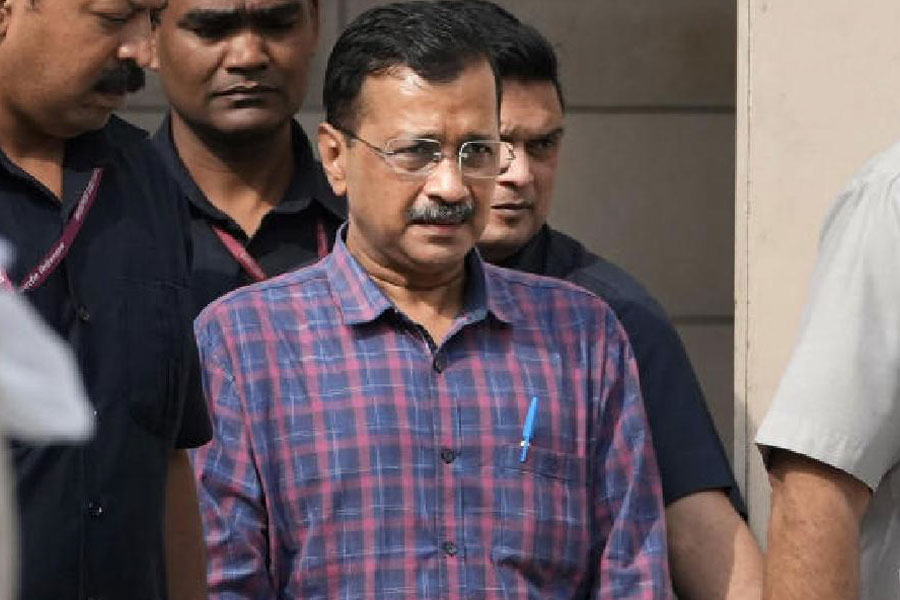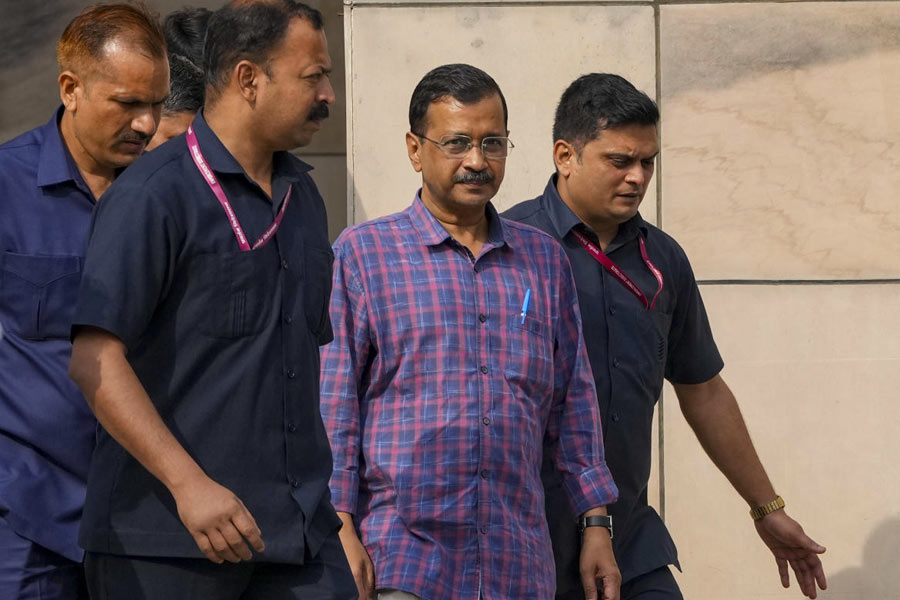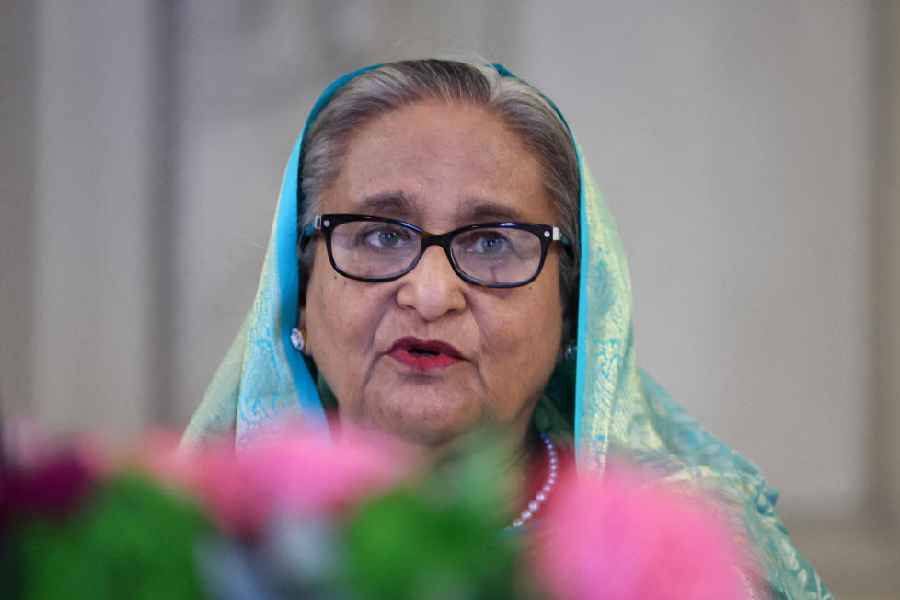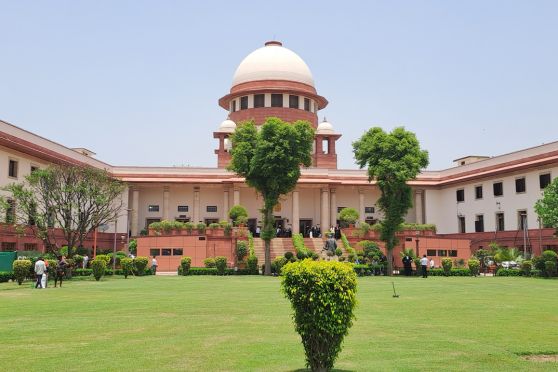Delhi Chief Minister Arvind Kejriwal is the "kingpin and key conspirator" of the excise policy scam and the arrest of a person for an offence based on material can never violate the “concept of free and fair elections”, the ED has told the Supreme Court.
The Enforcement Directorate claimed that Kejriwal worked in collusion with his ministers and AAP leaders and was also involved in “demanding kickbacks” from liquor businessmen in exchange for favours granted in the policy.
"Arvind Kejriwal, chief minister of NCT of Delhi is the kingpin and key conspirator of the Delhi excise scam in collusion with ministers of the Delhi govt, AAP leaders and other persons," the agency said in its 734-page reply affidavit.
"Arvind Kejriwal was involved in the conspiracy of formulation of the excise policy 2021-22 to favour certain persons and also involved in the demanding kickbacks from liquor businessmen in exchange for favours granted in the said policy," it said.
The ED said there are no different provisions in the PMLA, 2002 for different standards of evidence to be available to arrest a Chief Minister or a common citizen and the petitioner by emphasising his position is attempting to carve out a special category for himself which cannot be accepted.
Countering Kejriwal's contention that his arrest violates basic structures and doctrine of free and fair elections, the probe agency, which arrested Kejriwal in the case, said, "The arrest of a person, however high he may be, for a commission of offence based on material, can never violate the concept of free and fair elections.
"If the aforesaid argument is accepted, politicians who are criminals would be granted immunity from arrest on the ground that he is required to canvass in the election," it said.
"Treating a politician differently from an ordinary criminal in a matter of arrest would amount to arbitrary and irrational exercise of power of arrest which would violate the principle of equality enshrined under Article 14 of the Constitution," it added.
The agency pointed out that the arrest of Kejriwal was made because the investigating officer is in possession of material as required under section 19 which would indicate his guilt of the offence of money laundering punishable under the PMLA.
"A differential treatment in favour of a politician who is guilty of the offence of money laundering would violate 'rule of law' which would be a violation of the basic structure of the Constitution," it said.
Justifying his arrest, the ED said Kejriwal had been arrested bona fide and not for any mala fide or extraneous reasons.
"It is categorically denied that the arrest was mala fide. Regarding the contention pertaining to mala fide, it is submitted that not only the contentions of the petitioner is baseless and ill-founded but it is vague, general and not specific," it said.
It pointed out that Kejriwal was involved in the use of proceeds of crime thus generated in the Goa election campaign of the AAP to which he is the convenor and the ultimate decision maker.
The ED said Kejriwal has demanded kickbacks from the South Group in exchange for awarding favours to them in the formulation and implementation of the Excise Policy 2021-22 and highlighted that the chief minister was avoiding interrogation by not being present before the investigating officer despite nine summonses.
Reacting to the affidavit, the Aam Aadmi Party (AAP) alleged that the ED has become "a machine for telling lies".
The ED said in its affidavit, "The accused, by his conduct, has himself contributed and aided the investigating officer regarding the existence of the necessity to arrest, apart from the material in possession of the IO, to form the satisfaction that the petitioner is guilty of the offence of money laundering." Terming Kejriwal's petition challenging his arrest as "devoid of merit" and liable to be dismissed, the ED said the material that formed the basis for the satisfaction of the investigating officer for arresting him had been perused by different courts.
"Therefore, on this limited ground, the petition is devoid of merit and liable to be dismissed in limine.
"Second contention in this regard is that the material in possession of the investigating agency which formed the basis for the investigating agency to arrive at the satisfaction requisite for arresting the accused person, having been seen and perused by three different judicial authorities (courts) at three different levels has found judicial imprimatur and the consequential denial to grant the relief asked for by the petitioner in connection with the same," it said.
The ED arrested Kejriwal on March 21, hours after the Delhi High Court refused to grant him protection from coercive action by the federal anti-money laundering agency. He is currently lodged in Tihar jail under judicial custody.
On April 15, the top court issued a notice to the ED and sought its response to Kejriwal's plea.
The probe agency said in its affidavit, "Even on the date of the search during his interrogation while recording his statement under Section 17 of the PMLA (Prevention of Money Laundering Act), he was avoiding answering questions by being evasive and totally non-co-operative even with respect to simple non-incriminating questions." Reacting to the ED's affidavit, the AAP said, "The ED has become nothing but a machine for telling lies. Each time the ED comes up with new manufactured lies at the whims of their masters, the BJP." The matter pertains to alleged corruption and money laundering in the formulation and execution of the Delhi government's now-scrapped excise policy for 2021-22.
Except for the headline, this story has not been edited by The Telegraph Online staff and has been published from a syndicated feed.












